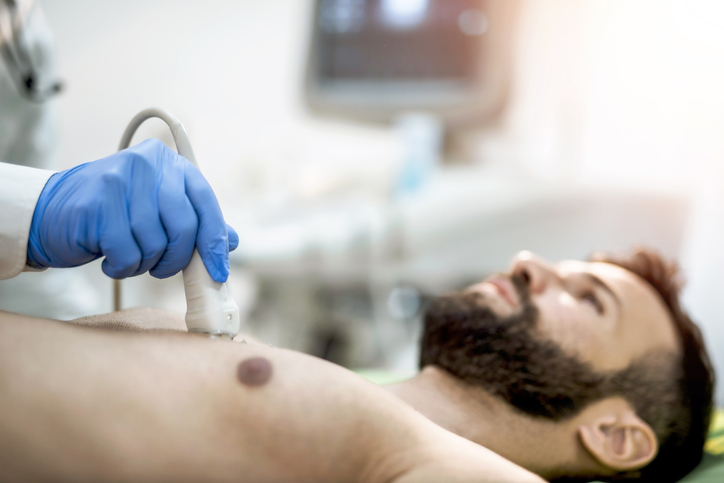
When people hear “ultrasound,” they usually think of a pregnant woman’s first chance to see her baby. But ultrasound technology has the potential to become much utilized within healthcare, and bringing it to the point of care will allow physicians to get an inside look at what’s going on inside their patient’s bodies.
That’s why Exo (pronounced “echo”), a company that sells point-of-care ultrasound software, recently partnered with Henry Ford Innovations, the commercialization arm of Detroit-based Henry Ford Health to enable more physicians to use its platform.

With the Rise of AI, What IP Disputes in Healthcare Are Likely to Emerge?
Munck Wilson Mandala Partner Greg Howison shared his perspective on some of the legal ramifications around AI, IP, connected devices and the data they generate, in response to emailed questions.
Exo, founded in 2015, has developed a software platform focused on physician workflow, which the company said is the foremost unsolved problem in the mobile ultrasound space. The platform seeks to address the industry’s lack of portable ultrasound solutions that can easily adapt to clinicians’ day-to-day work and integrate into an organization’s IT infrastructure. Without these features, mobile ultrasound solutions usually face continuous problems with compliance, education and reimbursement.
“We’re focused on providing the base layer of technology, as opposed to simply providing people a box and saying ‘go use this box and take images,’” said Sandeep Akkaraju, Exo’s co-founder and CEO.
Akkaraju said this sets Exo apart from other companies that offer portable ultrasound software, such as Clarius Mobile Health or Butterfly Network.
The company’s platform, called Exo Works, was unveiled in March. It enables physicians to easily document, review, bill and manage quality assurance for point-of-care ultrasounds. Further, it integrates with most hospitals’ EMRs and picture archiving and communication systems.
Exo Works’ mobile-first approach has the goal of increasing the volume of ultrasounds performed at the point of care. The platform is accessible from a phone, tablet or web browser, which allows physicians to work from anywhere. When designing the software, Akkaraju said his team wanted it to work just like “any of the lifestyle apps physicians might have on their phone.” He thinks prioritizing ease of use will help more physicians get on board with adopting the technology.
“This is about making sure the tools that medical providers have are on par with the tools that they use in their personal life,” Akkaraju said. “What could happen if your imaging software is as easy to use as Instagram?”
Exo’s partnership with Henry Ford seeks to validate its technology’s efficacy and ease of use. Henry Ford will receive access to Exo Works, as well as the handheld ultrasound device the company is developing. Exo Works also integrates with most portable ultrasound devices.
Exo will work closely with Henry Ford physicians to understand how the software is fitting into their day-to-day workflow and determine which changes can be made to increase clinicians’ satisfaction and usage rates. The company will also work with Henry Ford physicians to help commercialize the handheld device it is developing.
Additionally, Exo is building AI technology to make it easier for clinicians to capture and read an ultrasound image. Henry Ford will help Exo develop its algorithms by providing clinical data, as well as adopt and help validate the technology.
Exo chose Henry Ford as a partner so that it could test its technology at scale — the health system has more than 6,000 physicians across 250 locations. Henry Ford was also one of the first academic medical centers to incorporate ultrasound technology into its medical school curriculum, according to Akkaraju. He said Henry Ford trains medical students in this technology before they choose a specialty or get into a residency, enabling more physicians to become educated about point-of-care ultrasounds.
“Henry Ford has a massive scale, and it’s extremely valuable for us to understand how a technology like this works in different settings and in the hands of different sets of physicians,” Akkaraju said. “We look at ourselves as tool makers — we have to see how our tools are actually used in practice.”
Photo: DjelicS, Getty Images














